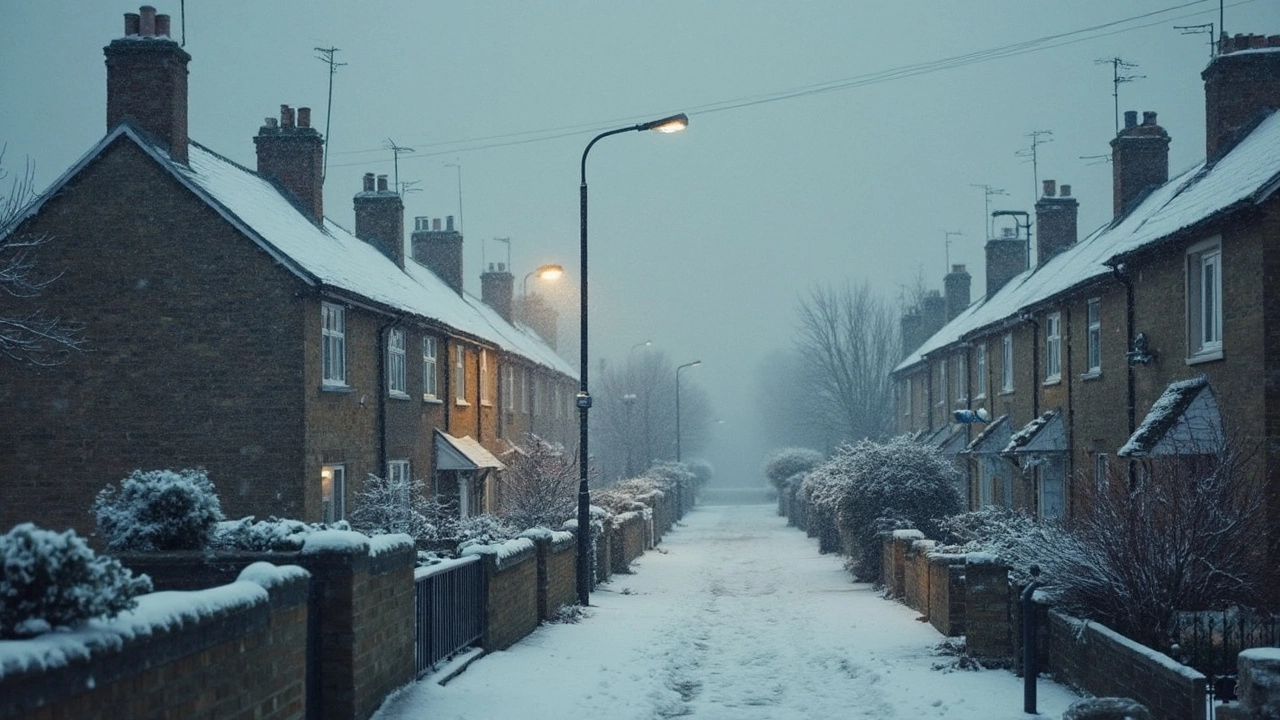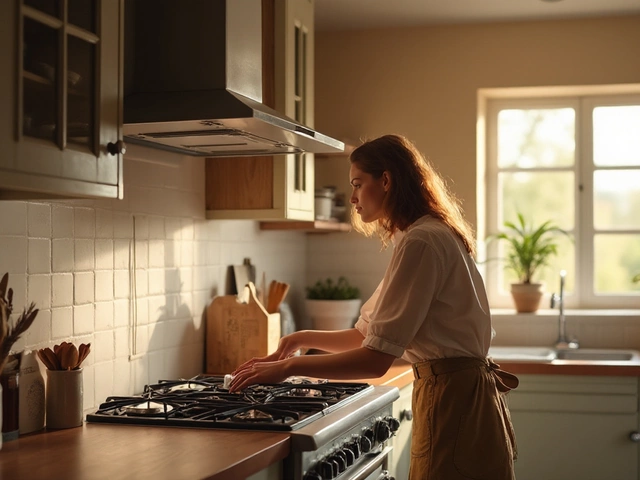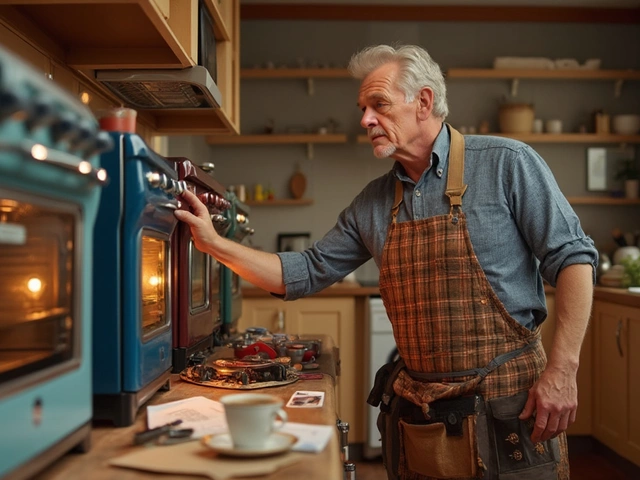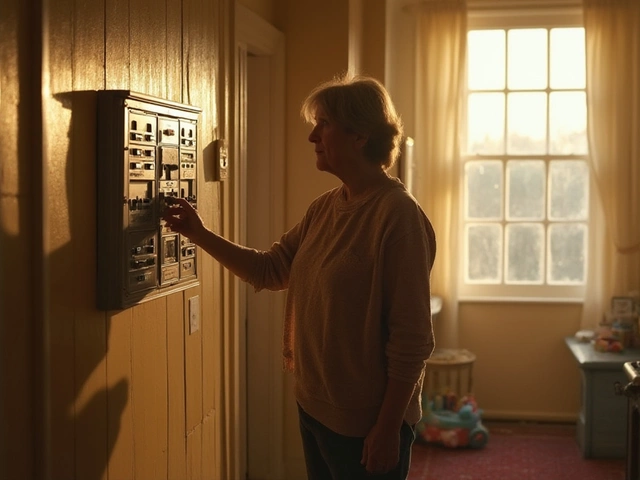Imagine it's a chilly morning, and you're about to step into a hot shower when all you get is an icy blast. Yep, your boiler's on the fritz. It's not just about comfort; sometimes, a broken boiler can be a real emergency.
Ever heard a boiler whistle like a kettle or hiss ominously? That's your first clue something's up. Boilers have complex systems and when they start acting up, they need a watchful eye. It’s kind of like how Charlie behaves before a storm hits—there's a tension in the air. What's important here is spotting what's an annoyance and what’s a 911 situation.
But before you panic and hit up every repair service in town, take a breather. Check out some tell-tale signs that your boiler isn't just throwing a fit but might actually need some urgent TLC. Knowing what these signs are can save you stress and money. Plus, I've got some handy tips on keeping things cozy until help arrives.
- Understanding Boiler Basics
- Signs Your Boiler Needs Immediate Attention
- DIY Checks Before Calling a Pro
- Staying Warm Until Help Arrives
Understanding Boiler Basics
You know, boilers are those unsung heroes keeping our homes toasty, especially when winter decides to play hardball. It’s all good until it’s not, right?
Here's the deal. Boilers are gadgets that heat water for your home. This heated water can either be used for space heating or to provide hot water. How do they do it? Most commonly by burning gas, oil, or using electric elements. So when you turn on the tap or up the thermostat, the boiler goes to work.
If you're asking whether every boiler is the same, think of them more like pizza—same basic idea, but variations abound. There are combi boilers which are popular in smaller homes because they don't require a water tank—they heat water directly as you need it. System boilers are chilling in bigger homes with their hot water cylinders, ready to serve when the whole family wants a hot shower simultaneously. Regular or traditional boilers work with a storage tank and are great for homes with old-school piping systems.
Now, controlling these systems has gotten easier. Modern boilers often have thermostats, a pressure gauge, and timers. For example, a boiler usually keeps operating pressure between 1.0 to 1.5 bar—anything outside that, and your boiler might act up.
Keep in mind, a well-functioning boiler not only saves you from unplanned cold showers but also keeps the energy bills from skyrocketing. And just like Charlie's enthusiastic greeting when you get home, boilers like regular check-ups to keep things running smoothly.
Here’s a quick comparison chart to visualize some key differences:
| Type | Space Needed | Pros | Cons |
|---|---|---|---|
| Combi Boiler | Small | Instant hot water | May struggle with high demand |
| System Boiler | Moderate | Good for multi-tap use | Requires water cylinder |
| Regular Boiler | Large | Ideal for old systems | Bulky and requires attic tanks |
Signs Your Boiler Needs Immediate Attention
So, how do you know if your boiler is just being a drama queen or if it's time to rush in the pros? Recognizing the red flags is key to preventing a small hiccup from becoming a costly disaster.
If your boiler is making weird noises, think banging, rumbling, or whistling, it might be trying to tell you something. These sounds often mean sediment buildup or, worse, a failing heat exchanger.
Keep an eye on leaks too. Even minor drips can signal internal damage or pressure issues. Water around the boiler isn't just annoying—it's a glaring warning.
Losing pressure consistently? Most boilers have a pressure gauge. If it's showing less than it should, it probably needs immediate attention.
"A sudden drop in boiler pressure can be an early indicator of severe system issues requiring prompt action," says Alex Ford, a seasoned HVAC technician.
- If your radiators aren't heating evenly or at all, you've got a problem. It could be air pockets or something more serious like a pump failure.
- Beware of a pilot light that's gone out or keeps flickering. It could be due to a draft or a faulty thermocouple.
Also, maintain a healthy level of suspicion if there's any strange smell around. You and the fam aren't supposed to play 'guess that gas'—it's often a sign of a potential carbon monoxide leak.
Understanding these signs can save you from a heap of trouble. If in doubt, always call in a professional to avoid any heating issues spiraling out of control. Remember, safety first!

DIY Checks Before Calling a Pro
Before dialing up a professional for your boiler repair, there are a few things you can try on your own. It's like giving your car a once-over before heading to the mechanic. These checks are quick and might save you some cash—plus, it gives you a bit of a head start with troubleshooting.
First off, check your thermostat. Did someone mess with it? Sometimes, settings get changed accidentally, especially in households with kids or curious pets like Charlie around. Ensure it's set to the correct temperature and is actually calling for heat.
Next, take a look at your boiler’s pressure gauge. Oddly enough, low pressure is a common culprit behind a broken boiler. Ideally, your system should be sitting somewhere between 1 and 1.5 on the pressure gauge. If it's too low, you may need to add water to the system—some boilers might have a filling loop to do just that.
- Check for any error codes displayed on the boiler—that's your boiler giving you clues like a fortune teller.
- Inspect radiators around your home for cold spots. Trapped air can cause uneven heating and might need bleeding.
- Look at the pilot light. If it's out, follow the manufacturer's instructions to safely relight it. If it keeps going out, it might be a sign of something more serious.
Here's a quick tip: ensure there aren’t any issues with power supply or gas supply. Sometimes the problem is as simple as a tripped circuit breaker or a closed valve. A little detective work on your part could make all the difference.
While these DIY checks won't always solve the problem, they help rule out simple issues and can make you sound a tad more informed when you do call the pros in. Keep calm and inspect on!
Staying Warm Until Help Arrives
So, your boiler decided to take an unexpected vacation. Now, you've got to deal with the cold without the trusty heat. Don't worry, there are a few tricks up my sleeve that can help you keep warm until a repair service gets there.
First off, think layers. Piling on sweaters, blankets, and even that old college hoodie can really do wonders in conserving body heat. Make sure everyone's bundled up, whether they’re lounging around or, like Luna, nestled in a cozy corner.
If you have a fireplace, now's the time to put it to good use. Lighting a fire not only adds warmth but also gives the house a cozy vibe, turning an uncomfortable situation into a mini campout. If you don't have a fireplace, space heaters are your next best bet. Just remember, safety first—don’t leave them running unattended!
And kitchens can be your warm haven. Baking your favorite cookies or a hearty meal isn’t just a great way to keep spirits high; the oven heat will help warm the room too. It's something Maya always finds helpful, turning potentially stressful situations into a chance for some family bonding time.
Also, keep in mind the power of curtains. During the day, let the sun pour in, but once it sets, close those curtains to insulate and keep the warmth in. It’s a simple trick, but it can make a world of difference.
Lastly, avoid drafts. Check windows and doors for any cold air sneaking in and seal them off. Draft stoppers can be lifesavers here, or even rolled-up towels can do in a pinch.
- Layer up with clothing and blankets.
- Use your fireplace or a space heater safely.
- Cook and bake to utilize oven heat.
- Keep curtains open during the day and closed at night.
- Seal drafts around windows and doors.
Remember, staying warm isn’t just about comfort; it’s about keeping everyone safe and healthy until the professionals work their magic on your broken boiler.





